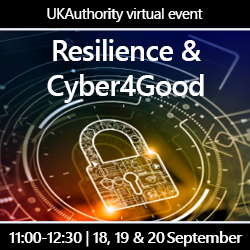
Recently published guidance for police forces’ use of live facial recognition (LFR) has prompted the government official with oversight of the technology to express his concerns over the contents.
Professor Fraser Sampson, the biometrics and surveillance camera commissioner, has published a response to the authorised professional practice (APP) document produced late last month by the College of Policing.
He said he is glad to see its commitment to lawful and ethical use of LFR – which can identify and raise alerts on individuals in public places – but that he is worried about a handful points.
The College of Policing said the code is aimed at ensuring police forces in England and Wales take a consistent approach to using the technology, and providing an ethical and legal framework.
Among its key points are that: LFR should only be used when less intrusive methods would not achieve the same results; its use has to be targeted and based on intelligence with set times for it to begin and end; images placed on a database must meet a proportionality and necessity criteria and be reviewed with every deployment; police forces should give public notice on the use of LFR; and elected police and crime commissioners should provide oversight.
Finding witnesses worry
Sampson has now responded with areas of concern, including that the apparent intention to use LFR to find potential witnesses is too speculative to be legitimate and proportionate, and could only be justified in exceptional cases such as to prevent a terrorist attack.
He said there need to be clearer distinctions in some of the terminology, such as between an LFR search, a mass screening and a forensic database search, as this is important in how the public understands the APP and its implications.
His statement also raised familiar concerns over potential racial bias in the algorithms underpinning the technology, and that there is a need for strong safeguards when it is used in counter-terrorism with the potential for the use of firearms.
Finally, the police are currently focusing on keeping data safe in regard to the data rights issues, but this should extend to the technology’s wider impact on society. This will be important in building public trust.
Line fishing to trawling
“In summary,” Sampson said, “in moving from a standard police operating model of humans looking for other humans in a crowd to the automated industrialised process of LFR (as some have characterised it, a move from line fishing to deep ocean trawling), how commonplace will it become to be stopped in our cities, transport hubs, outside arenas or school grounds and required to prove our identity?
“The ramifications for our constitutional freedoms in that future are profound.
“Is the status of the UK citizen shifting from our jealously guarded presumption of innocence to that of ‘suspected until we have proved our identity to the satisfaction of the examining officer’? If so, that will require more than an APP from the College of Policing: it will require parliamentary debate.”
He added that that he wants to continue an open dialogue with stakeholders, and that his office is planning to run a mock trial of facial recognition on 14 June.





